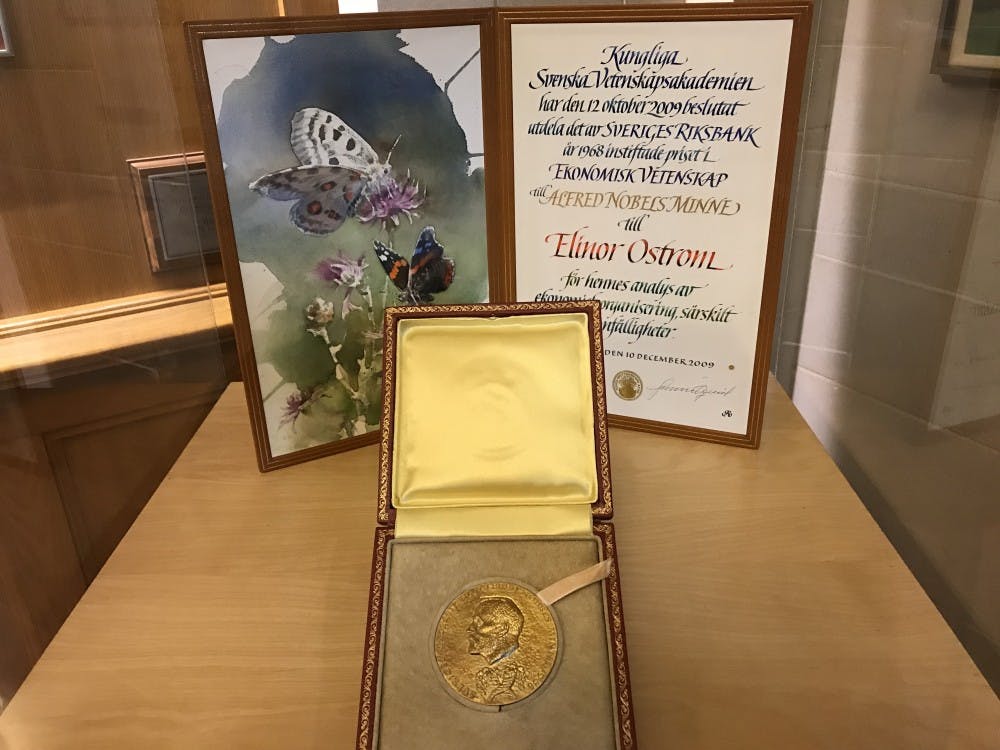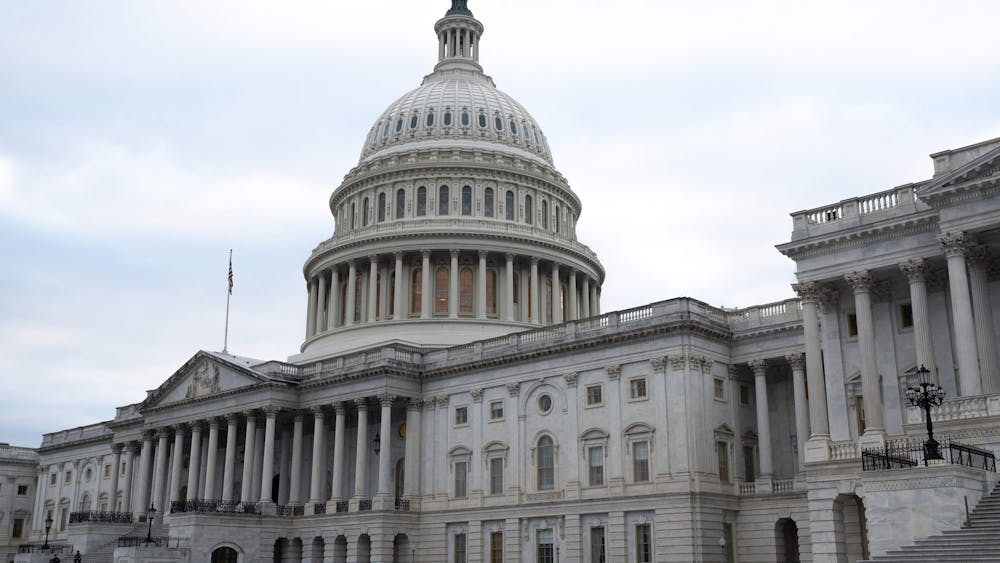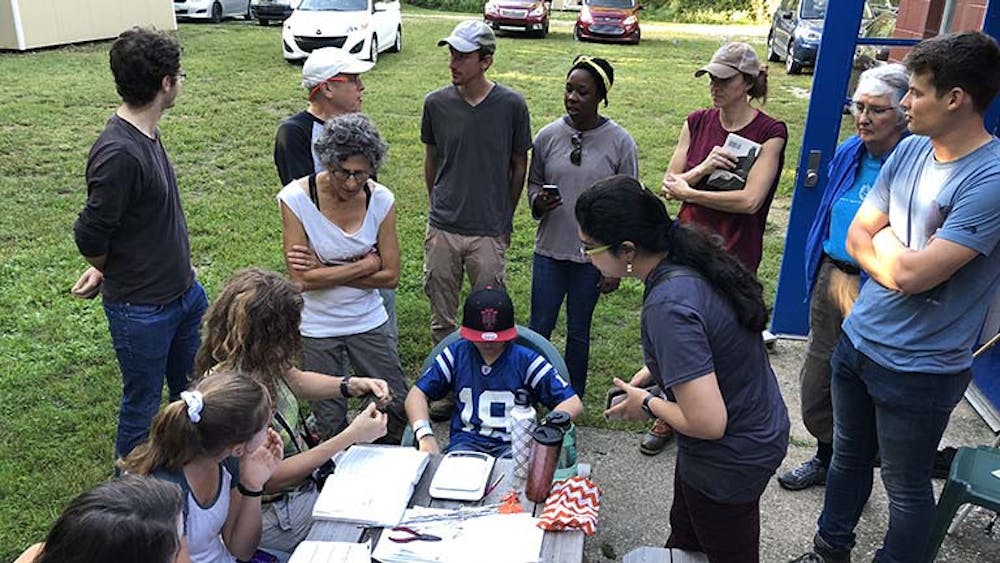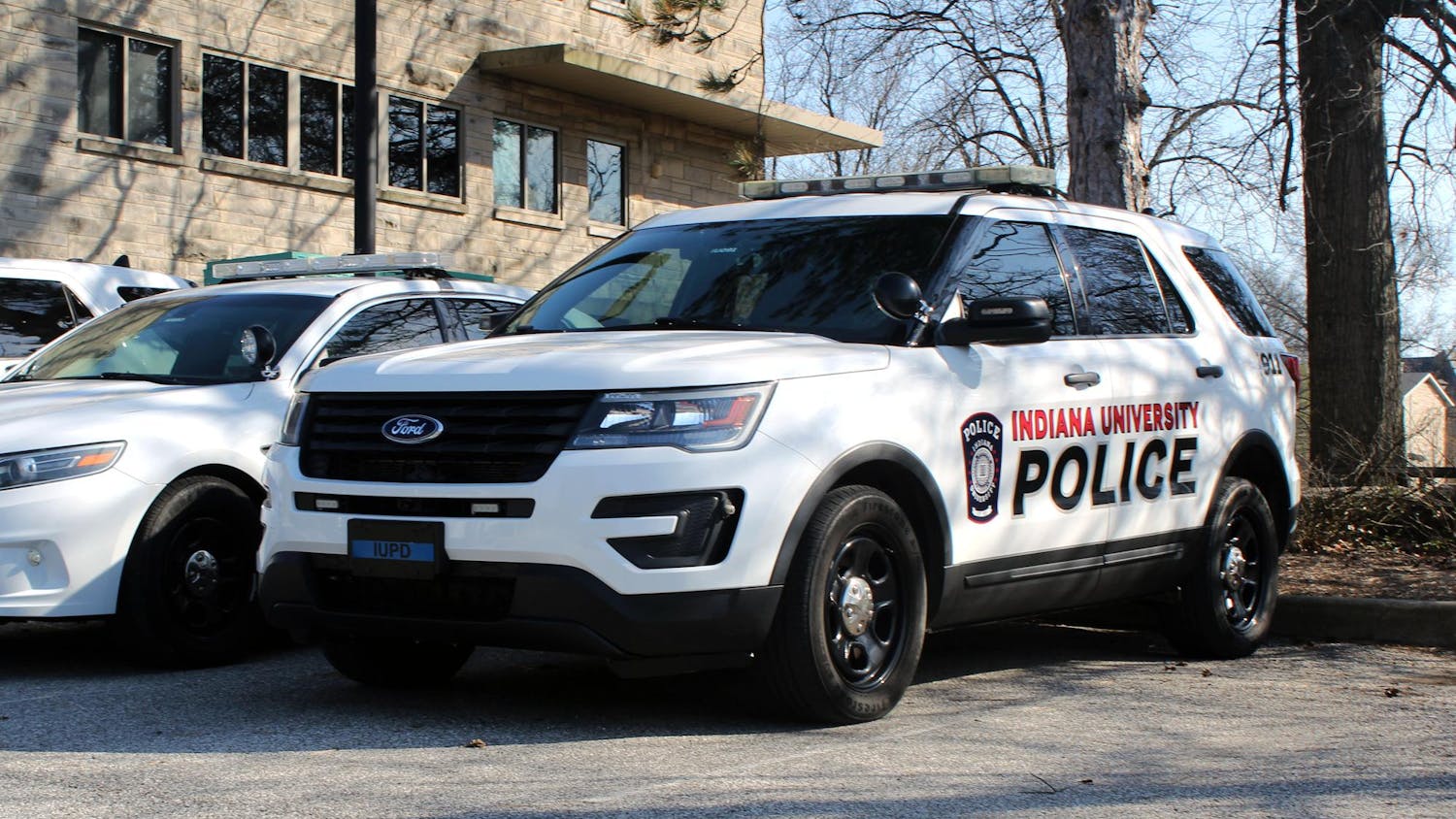Since 1901, the Nobel Foundation in Sweden has given out prizes in physics, chemistry, physiology or medicine, literature, economic sciences and peace. A mixture of IU faculty and alumni have earned a collective nine Nobel Prizes — two in economic sciences, two in physics and five in physiology or medicine.
Here is a look at each of the nine recipients:
Elinor Ostrom — Nobel Prize in Economic Science, 2009

Ostrom came to IU first as a visiting professor after earning a Ph.D. in political science from UCLA in 1965. She would go on to become an assistant professor in 1966, associate professor in 1969 and professor in 1974. From 1980 to 1984, Ostrom was chair of the department.
According to IU's website, Ostrom received her Nobel Prize in 2009 for her "decades of research that challenged the belief that common property is always poorly managed and should be regulated by the state or privatized."
Oliver Williamson — Nobel Prize in Economic Science, 2009
Williamson completed his Ph.D. at Carnegie Mellon University in 1963. Though he did not teach at IU, he was the joint recipient with Elinor Ostrom.
Williamson is currently a professor emeritus of the Graduate School and Edgar F. Kaiser Professor Emeritus of Business at Haas School of Business at University of California, Berkeley.
Riccardo Giacconi — Nobel Prize in Physics, 2002
Giacconi graduated from the University of Milano in Milan, Italy, where he became an assistant professor. In 1956 Giacconi came to IU on a Fullbright Fellowship to collaborate with inventor R.W. Thompson. According to IU's website, he worked on a larger cloud chamber for cosmic ray research.
Ferid Murad — Nobel Prize in Physiology or Medicine, 1998
Murad is an Indiana native from Whiting who attended DePauw University. During the summers of his undergraduate career he took mathematics and literature classes at a regional IU campus, according to IU's website.
Murad received his Nobel Prize for his discovery of nitric oxide's effect on blood vessels.
Renato Dulbecco — Nobel Prize in Physiology or Medicine, 1975
Dulbecco studied medicine at the University of Torino in Turin, Italy, before serving as a medical officer for the Italian army in World War II. After returning from the war Dulbecco was invited to IU by his friend Salvador Luria. The two shared a lab at IU, where they studied viruses.
Later in his career Dulbecco, along with David Baltimore and Howard Martin Temin, would share a 1975 Nobel Prize "for their discoveries concerning the interaction between tumor viruses and the genetic material of the cell," according to IU's website.
Salvador Edward Luria — Nobel Prize in Physiology or Medicine, 1969
Luria also attended the University of Torino in Turin, Italy. In 1943, Luria became a faculty member at IU, where he continued to study viruses. In 1970, Luria received an honorary doctoral degree in science from IU.
Luria would go on to work for MIT, where he became the first director of the MIT Center for Cancer Research.
J. Hans D. Jensen — Nobel Prize in Physics, 1963
Jensen was born in Hamburg, Germany, where he attended school and received a Ph.D from University of Hamburg.
Jensen eventually made his way to IU as a visiting professor and worked with members of the physics department. His discoveries of atom structure would lead him to his 1962 Nobel Prize.
James Dewey Watson — Nobel Prize in Physiology or Medicine, 1962
Watson completed his Ph.D. program at IU when he was just 22 years old. Just two years after graduating he and his research partner would discover the DNA molecule, the double helix that carries genetic information in all living things.
Watson and two other scientists received the Nobel Prize in 1962 for their discoveries of nucleic acid and its significance.
Hermann J. Muller — Nobel Prize in Physiology or Medicine, 1946
Muller's research into gene mutations and chromosome changes caused by x-rays, which was later expanded upon by other scientists, would eventually win him the 1946 Nobel Prize in Physiology or Medicine.
He would go on to work as a professor in the zoology department at IU. While there he studied radiation-induced mutations.






